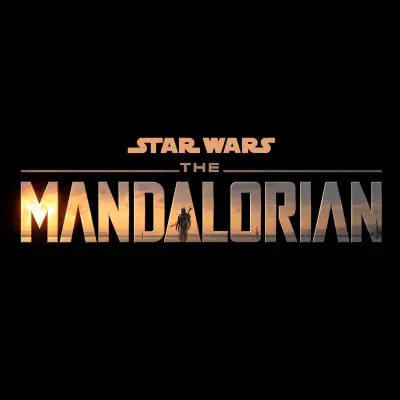The Mandalorian's Luke Skywalker cameo was self-defeating: Does every new Star Wars tale have to connect to the same handful of genetically linked characters?
-

Disney+'s The Mandalorian is easily the freshest thing the Stars Wars franchise has had to offer since the 2003 debut of Clone Wars, says Matt Zoller Seitz. "But in the final moments of 'Chapter 16: The Rescue,' the series succumbs to the dark side of parent company Disney’s quarterly-earnings statements, which keeps dragging Star Wars back toward nostalgia-sploitation and knee-jerk intellectual-property maintenance. Where to begin lamenting this self-defeat? For one thing, the Luke cameo in the final moments of 'The Rescue' continues the Disney-era Star Wars tradition of tying every supposedly new story back to the multigenerational adventures of the Skywalker family. Even universe-expanding takes like Rogue One (a clever retcon of the original Death Star’s structural flaw, with cameos by Darth Vader, Grand Moff Tarkin, Princess Leia, and other familiar characters) and Solo (an origin story for everyone’s favorite smuggler-general and the future daddy of Kylo Ren) fall prey to this tendency. It always feels like a sop to Disney stockholders and a way of hedging bets on any property that dares to take even a modest risk. It’s hard to capture in words the galaxy-collapsing shortsightedness of requiring that every new Star Wars tale ultimately connect, however tangentially, with the same handful of genetically linked characters. Star Wars’ bizarre obsession with Force-amplifying, midi-chlorian-rich blood, and the proximity of 'regular' characters to those with special blood, makes Lucas’s galaxy far, far away — a place so vast that you need hyperspace to cross it — feel as rinky-dink as a backwater American town, the kind of place where everybody is required to kiss the same local family’s butt for survival’s sake. Every time a Star Wars story genuflects to the Skywalker saga yet again, Lucas’s mythos shrinks further in the collective imagination. Sometimes it’s so small-minded that you’d think Disney’s mandate was to reimagine Mayberry with starships and laser swords."
ALSO:
- Jon Favreau and Dave Filoni delivered arguably one of the most critic- and crowd-pleasing seasons and finales ever: "And they did it despite shouldering the potentially distracting demands that come with being the backbone of Disney’s streaming service and doubling as a factory for Star Wars spinoffs," says Ben Lindbergh, adding: "In retrospect, the second season of The Mandalorian had a harder assignment than Mando’s mission of reuniting Grogu with the nearly nonexistent Jedi Order. Although the first season of the series was hotly anticipated and integral to the launch of Disney+, it was also the small-screen sidekick to the blockbuster conclusion of the Skywalker saga. By the time its second season started, The Mandalorian had the Star Wars stage to itself. But it also had a lot of old damage to undo and a dizzying amount of new narrative track to lay. When Season 2 premiered in October, the franchise’s fan base was still splintered by debates, disappointment, and bitterness about the sequel trilogy, and the list of confirmed upcoming projects was sparse. A tad more than two months later, the good name of Star Wars is seemingly restored, and Disney has divulged details about 10 new Star Wars projects in the pipeline. Much of that reversal stems from the reputation-restoring and world-building work of Mandalorian executive producers Jon Favreau and Dave Filoni, who continued to tell an entertaining story and do justice to the emotional center of their series while incorporating several preexisting Star Wars characters and setting up a trio of spinoffs."
- Why is Mando so hot?: "It’s not not normal to be attracted to a character without a human face," says Lizzie Logan. "Many swooned for Disney’s Robin Hood, who was both a cartoon and a woodland creature, and even Man Ray from SpongeBob has entered the pantheon of masked sexpots. But both of those characters have, at least, features. We can’t even look Mando in the eyes, let alone read his reactions. Acting teachers and voiceover artists may point out that masked actors are as old as theater itself, and that Pedro Pascal’s vocal performance is layered and emotional, and that’s all true… but it’s also true that the screen demands a face, and in denying us that face (until moments in season two, which I will get to), the show is denying us information about the character, and we’re forced to fill it in ourselves, extrapolating from what we do know about him."
- Sebastian Stan should've played young Luke: It would've been more enjoyable to see a version of Luke with an actual face and not a CGI one
- The Mandalorian fans have expressed nothing but appreciation for Mark Hamill since his cameo
- Katee Sackhoff and Mercedes Varnado discuss making their first appearances on The Mandalorian
- Check out a Mandalorian-themed Christmas lighting display
- Somebody wrote lyrics to The Mandalorian theme song
TOPICS: Star Wars: The Mandalorian, Disney+, Dave Filoni, Jon Favreau (actor/director), Katee Sackhoff, Mark Hamill, Mercedes Varnado, Star Wars
